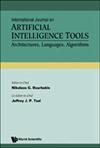Neural Network-based Tool for Survivability Assessment of K-variant Systems
IF 1
4区 计算机科学
Q4 COMPUTER SCIENCE, ARTIFICIAL INTELLIGENCE
International Journal on Artificial Intelligence Tools
Pub Date : 2023-05-24
DOI:10.1142/s0218213023500495
引用次数: 0
Abstract
The K-variant is a multi-variant architecture to enhance the security of the time-bounded mission and safety-critical systems. Variants in the K-variant architecture are generated by controlled source program transformations. Previous experimental studies showed that the K-variant architecture might improve the security of systems against memory exploitation attacks. In order to estimate the survivability of K-variant systems, simulation techniques are utilized. However, these techniques are slow and may not be practical for the design of K-variant systems. Therefore, fast and highly accurate estimations of the survivability of K-variant systems are necessary for developers. The neural networks may allow quick and accurate estimation of the survivability of K-variant systems. The developed neural network-based tool can make quick and precise estimations of the survivability of K-variant systems under different conditions. In this paper, the accuracy of the neural network-based tool is investigated in an experimental study. The neural network-based tool estimations are compared with a K-variant attack emulator in three programs for up to ten variant systems under four attack types and three attack durations. The experimental study demonstrates that the neural network-based tool makes fast and accurate estimations of the survivability of K-variant systems under all the conditions investigated.基于神经网络的k变系统生存能力评估工具
k型是一种多变体架构,用于增强限时任务和安全关键系统的安全性。k变体体系结构中的变体是由受控的源程序转换生成的。先前的实验研究表明,k变体架构可以提高系统对内存利用攻击的安全性。为了估计k变系统的生存能力,利用了仿真技术。然而,这些技术是缓慢的,可能不实用的设计k变系统。因此,对于开发人员来说,快速和高度准确地估计k变量系统的生存能力是必要的。神经网络可以快速准确地估计k变量系统的生存能力。所开发的基于神经网络的工具可以快速准确地估计k变系统在不同条件下的生存能力。本文对基于神经网络的工具的精度进行了实验研究。在四种攻击类型和三种攻击持续时间下,在三个程序中,将基于神经网络的工具估计与k变体攻击模拟器进行了比较。实验研究表明,基于神经网络的工具可以快速准确地估计k变系统在所有研究条件下的生存能力。
本文章由计算机程序翻译,如有差异,请以英文原文为准。
求助全文
约1分钟内获得全文
求助全文
来源期刊

International Journal on Artificial Intelligence Tools
工程技术-计算机:跨学科应用
CiteScore
2.10
自引率
9.10%
发文量
66
审稿时长
8.5 months
期刊介绍:
The International Journal on Artificial Intelligence Tools (IJAIT) provides an interdisciplinary forum in which AI scientists and professionals can share their research results and report new advances on AI tools or tools that use AI. Tools refer to architectures, languages or algorithms, which constitute the means connecting theory with applications. So, IJAIT is a medium for promoting general and/or special purpose tools, which are very important for the evolution of science and manipulation of knowledge. IJAIT can also be used as a test ground for new AI tools.
Topics covered by IJAIT include but are not limited to: AI in Bioinformatics, AI for Service Engineering, AI for Software Engineering, AI for Ubiquitous Computing, AI for Web Intelligence Applications, AI Parallel Processing Tools (hardware/software), AI Programming Languages, AI Tools for CAD and VLSI Analysis/Design/Testing, AI Tools for Computer Vision and Speech Understanding, AI Tools for Multimedia, Cognitive Informatics, Data Mining and Machine Learning Tools, Heuristic and AI Planning Strategies and Tools, Image Understanding, Integrated/Hybrid AI Approaches, Intelligent System Architectures, Knowledge-Based/Expert Systems, Knowledge Management and Processing Tools, Knowledge Representation Languages, Natural Language Understanding, Neural Networks for AI, Object-Oriented Programming for AI, Reasoning and Evolution of Knowledge Bases, Self-Healing and Autonomous Systems, and Software Engineering for AI.
 求助内容:
求助内容: 应助结果提醒方式:
应助结果提醒方式:


